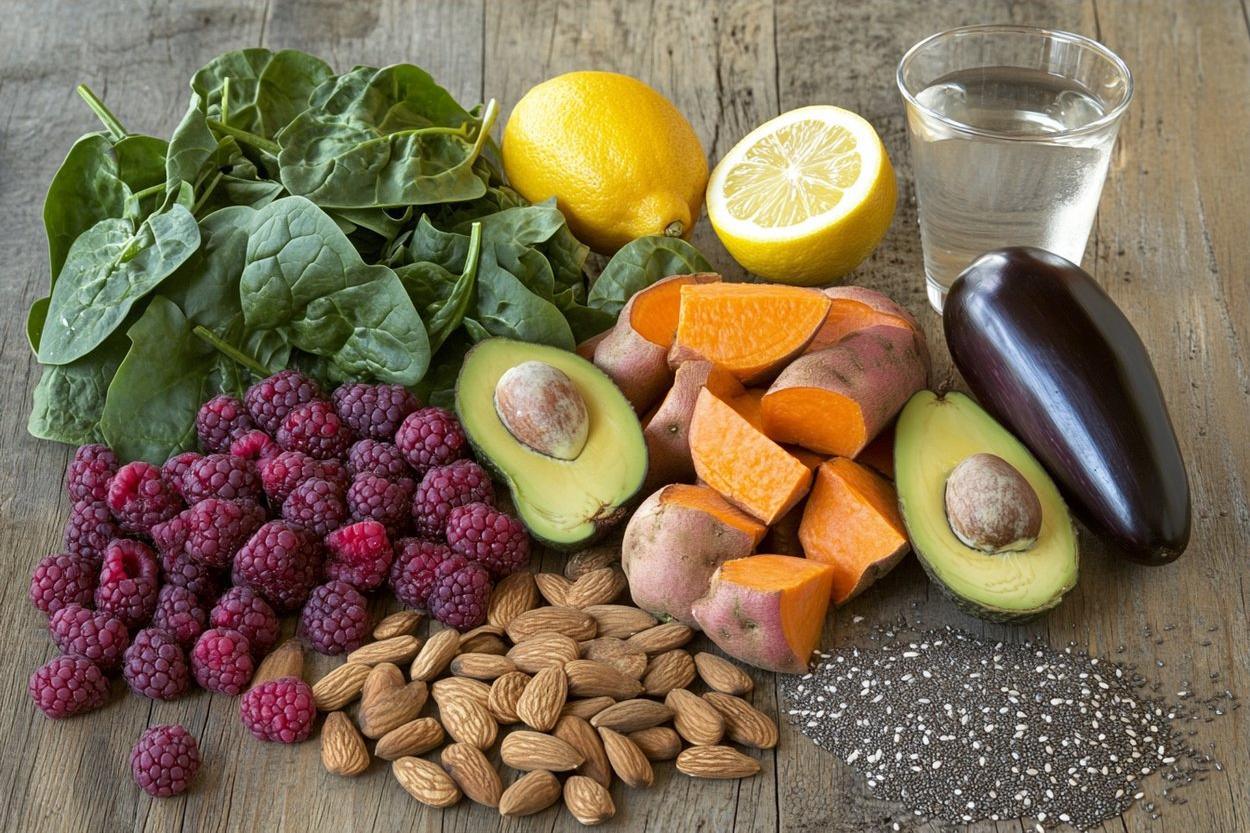Fueling Your Brain: The Impact of Nutrition on Cognition
Nutrition plays a pivotal role in our overall health, but its influence on cognitive function is often overlooked. The food we consume directly affects our brain's structure and performance, shaping our ability to think, learn, and remember. Recent scientific advancements have unveiled intricate connections between dietary choices and neurological processes, sparking a renewed interest in "brain food." This growing field of nutritional neuroscience is not only reshaping our understanding of cognitive health but also offering promising strategies for enhancing mental acuity and potentially mitigating age-related cognitive decline.

Research has shown that the composition of our gut bacteria can significantly influence brain function and behavior. A diverse and balanced microbiome is associated with improved cognitive performance, while dysbiosis—an imbalance in gut bacteria—has been linked to various neurological disorders. Probiotic-rich foods like yogurt, kefir, and fermented vegetables can help maintain a healthy gut microbiome, potentially benefiting cognitive function.
Omega-3 Fatty Acids: Brain-Boosting Nutrients
Omega-3 fatty acids, particularly docosahexaenoic acid (DHA) and eicosapentaenoic acid (EPA), are essential for brain health. These polyunsaturated fats are crucial components of cell membranes in the brain and play a vital role in neurotransmitter function, synaptic plasticity, and overall cognitive performance.
Numerous studies have demonstrated the cognitive benefits of omega-3 fatty acids. Regular consumption has been associated with improved memory, enhanced learning abilities, and a reduced risk of age-related cognitive decline. Additionally, omega-3s have shown promise in managing symptoms of certain neurological disorders, such as depression and ADHD.
Fatty fish like salmon, mackerel, and sardines are excellent sources of omega-3s. For those following plant-based diets, algae-derived supplements, walnuts, and flaxseeds can provide alternative sources of these brain-boosting nutrients.
Antioxidants and Neuroprotection
Oxidative stress and inflammation are key factors contributing to cognitive decline and neurodegenerative diseases. Antioxidants, found abundantly in fruits, vegetables, and certain spices, play a crucial role in protecting brain cells from oxidative damage and reducing inflammation.
Berries, particularly blueberries and strawberries, are rich in flavonoids that have been shown to improve memory and delay cognitive aging. Other potent sources of brain-protective antioxidants include dark leafy greens, nuts, and spices like turmeric and cinnamon.
The Mediterranean diet, characterized by high consumption of fruits, vegetables, whole grains, and healthy fats, has been consistently associated with better cognitive function and a reduced risk of neurodegenerative diseases. This dietary pattern provides a wide array of antioxidants and anti-inflammatory compounds that support brain health.
The Role of B Vitamins in Cognitive Function
B vitamins, including B6, B12, and folate, play crucial roles in brain health and cognitive function. These vitamins are involved in the synthesis of neurotransmitters, the formation of myelin sheaths that insulate nerve fibers, and the regulation of homocysteine levels—a compound linked to cognitive decline when present in excess.
Deficiencies in B vitamins have been associated with various cognitive impairments, including memory loss and increased risk of dementia. Ensuring adequate intake of B vitamins through diet or supplementation may help maintain cognitive function, particularly in older adults.
Good dietary sources of B vitamins include leafy greens, legumes, eggs, and fortified cereals. For individuals following plant-based diets, B12 supplementation is often recommended to prevent deficiency, as this vitamin is primarily found in animal products.
The Ketogenic Diet and Brain Function
The ketogenic diet, a high-fat, low-carbohydrate eating plan, has gained attention for its potential cognitive benefits. Originally developed as a treatment for epilepsy, this diet induces a metabolic state called ketosis, where the body primarily uses ketones for energy instead of glucose.
Emerging research suggests that the ketogenic diet may have neuroprotective effects and could potentially benefit individuals with certain neurological disorders, including Alzheimer’s disease and Parkinson’s disease. The diet’s ability to reduce inflammation, improve mitochondrial function, and provide an alternative energy source for brain cells are thought to contribute to its cognitive benefits.
However, the long-term effects of the ketogenic diet on brain health in healthy individuals remain unclear, and more research is needed to fully understand its impact on cognitive function across different populations.
Hydration and Cognitive Performance
While often overlooked, proper hydration is crucial for optimal brain function. Even mild dehydration can impair cognitive performance, affecting attention, memory, and mood. The brain is composed of approximately 75% water, and maintaining adequate hydration is essential for various neurological processes, including neurotransmitter function and waste removal.
Studies have shown that dehydration can lead to decreased cognitive performance, increased fatigue, and altered mood states. Conversely, improving hydration status has been associated with enhanced cognitive function, particularly in tasks requiring attention and memory.
While individual hydration needs vary, aiming for at least 8 glasses of water per day is a good general guideline. Additionally, consuming water-rich foods like fruits and vegetables can contribute to overall hydration status.
The Impact of Caffeine on Cognition
Caffeine, the world’s most widely consumed psychoactive substance, has well-documented effects on cognitive function. This stimulant works primarily by blocking adenosine receptors in the brain, leading to increased alertness, improved attention, and enhanced cognitive performance.
Research has shown that caffeine can improve various aspects of cognition, including reaction time, vigilance, and working memory. Regular coffee consumption has also been associated with a reduced risk of cognitive decline and neurodegenerative diseases like Alzheimer’s and Parkinson’s.
However, the effects of caffeine on cognition can vary among individuals, and excessive consumption may lead to negative side effects such as anxiety and sleep disturbances. Moderation is key, with most experts recommending limiting caffeine intake to 400mg per day for healthy adults.
Nourishing the Mind Through Nutrition
The intricate relationship between nutrition and cognitive function underscores the importance of a balanced, nutrient-rich diet for optimal brain health. By incorporating brain-boosting foods and adopting dietary patterns that support cognitive function, we can potentially enhance our mental acuity, protect against age-related cognitive decline, and improve overall brain health.
As research in nutritional neuroscience continues to evolve, it’s becoming increasingly clear that our dietary choices play a significant role in shaping our cognitive abilities. While no single food or nutrient holds the key to perfect brain health, a holistic approach to nutrition that prioritizes a variety of nutrient-dense foods can provide a solid foundation for cognitive well-being throughout life.
Ultimately, the food we consume not only fuels our bodies but also nourishes our minds, highlighting the profound impact of nutrition on our most complex organ – the brain. As we continue to unravel the mysteries of the brain-diet connection, the potential for nutrition-based strategies to enhance cognitive function and prevent neurological disorders offers exciting possibilities for future research and practical applications in healthcare and everyday life.




